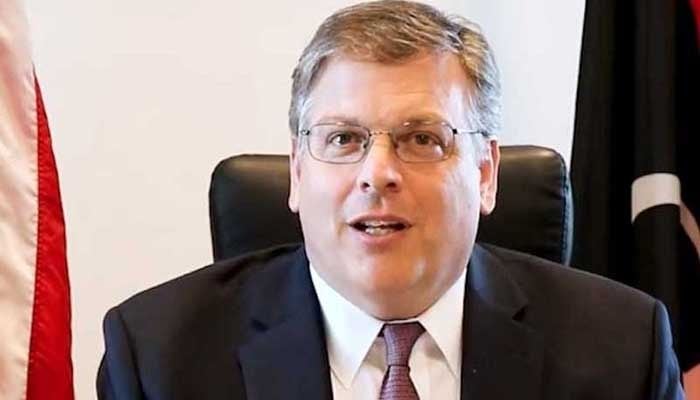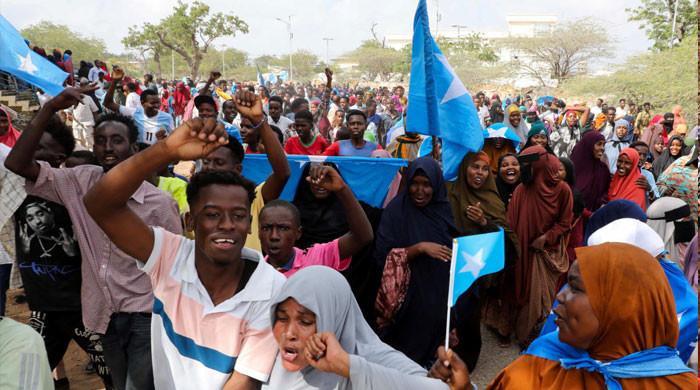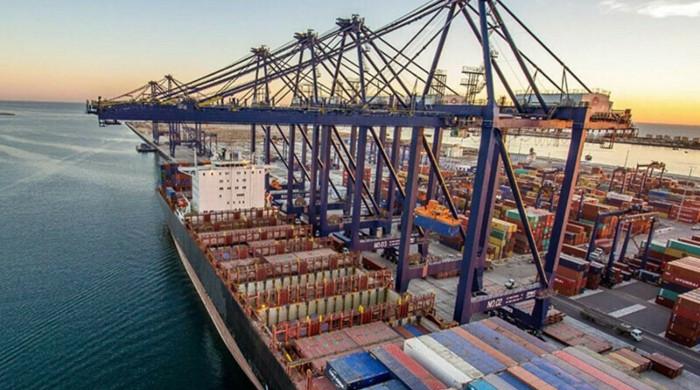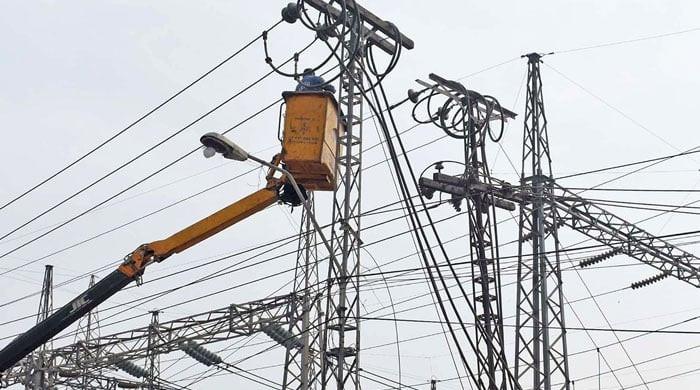The US agenda in South Asia
Indicators of US policy in South Asia reveal trend of making US-India alliance more strong
December 22, 2021

While Pakistan’s new ambassador to the US, Masood Khan, is expected to arrive in Washington and take charge of his post, President Biden’s nominee as ambassador to Pakistan, Donald Armin Blome, is facing the Foreign Relations Committee of the US Senate for scrutiny, questioning, and confirmation.
One should wish for this American system of nomination by the executive and confirmation by the legislative branch after scrutiny, questioning, advice, and confirmation of key and powerful position holders.
The three nominees for ambassadorship to Pakistan, India and Germany jointly appeared before the Foreign Relations Committee of the Senate for ‘Confirmation Hearings’ on December 14, 2021.
Senator Bob Menendez (D-NJ), chairman of the Foreign Relations Committee, made his opening statement. Addressing the US nominee ambassador to Pakistan, Menendez said: "Ambassador Blome, I welcome your nomination at this particularly challenging moment in the US-Pakistan bilateral relationship. As I told this committee last month, the failure of our mission in Afghanistan was due, in no small part, to years of Pakistani double-dealing. Islamabad offered a safe haven to the Taliban even as its militants targeted and killed US troops. We need to have a serious conversation with the Pakistani government on the path forward, and I am confident that you will deliver a tough message to them, if confirmed. "
He was also critical of religious intolerance, nuclear proliferation, and the rise of extremist groups in Pakistan – and was supportive of managing tensions between India and Pakistan.
Senator Menendez, who was now allowed a visit to Indian Occupied Kashmir during his visit to India, was equally critical of India for violations of human rights, intolerance of religious minorities, climate change and other issues. He hoped that the potential ambassador to India, Eric Garcetti, would also give a tough message to India on these issues.
Ranking Member of the Committee, Republican Senator Jim Risch, advocated a "reframe of relations with Pakistan" and said: "For more than 20 years, the US-Pakistan relationship has been viewed through the lens of the war in Afghanistan. Pakistan has, and should, continue to play a key role in mitigating the fallout from this administration’s catastrophic withdrawal from Afghanistan. Whether it is humanitarian assistance, human rights, or counterterrorism, it’s clear the end of US military involvement in Afghanistan does not signal the end of American interests there. " Senator Risch supported a "balance of power with all players in South and Central Asia".
Other members of the Foreign Relations Committee also made their remarks and asked questions from all three nominated ambassadors to Pakistan, India and Germany. The remarks by the Senate Committee Members and the responses by the ambassadors-designate awaiting confirmation are good indicators of the public issues and agenda of the US with the respective countries. The tone and the tenor of the hearing for the confirmation of three US ambassadors give a clear indication that a new polarisation of the globe and a new cold war is in the process. The idea of further expansion of Nato membership is generating US-Russia tensions, while Asian countries are faced with a rising cold war between China and the US.
The potential ambassador to Germany, Dr Amy Gutmann, is president of the University of Pennsylvania with ancestors that fled from Nazi Germany. She was questioned about the $86 million the University of Pennsylvania received from different sources from China. Republican Senator Marco Rubio asked her openly about her plans to disengage from the German-China trading partnership, while advancing American interests against Russia.
The ambassador-designate to India, Eric Garcetti, is a politician and has been mayor of Los Angeles City. He learnt Hindi and Urdu during his stay in India and also learnt about Indian cultural and religious history. A political appointee who will be assisted by a large contingent of skilled staff to achieve the big and broad goals of the US-India Alliance. In his statement and response to questions by senators, Garcetti pointed out the "tough neighborhood" of India and supported the sovereignty and border security of India from any "aggression" – though without any mention of internationally disputed territory under Indian occupation or violation of human rights in the Occupied Kashmir territory. Rather, Eric Garcetti, if confirmed, has promised his efforts would be to elevate American relations with India to "new heights". Sharing of information, building up Indian capacity, helping India deter aggression, and securing its borders, will be part of this US ambassador’s work agenda.
For the last 28 years, Ambassador-designate to Pakistan, Donald Armin Blome, has been a career diplomat. A law graduate from Michigan University, he is not only fluent in Arabic, but a cursory look at his diplomatic assignments reveals that his speciality is dealing with the Muslim world. He has worked at the US embassies in Kabul, Cairo, Kuwait, Baghdad, Riyadh, Amman, and Jerusalem, among other locations. He was also US ambassador to Tunisia and dealt with Libyan, Israeli, Palestinian, and Arabian Peninsula affairs and other assignments at the US State Department.
Pakistan has been without an ambassador from the US for some time. Ambassador Donald Blome is a skilled diplomat with fluency in Arabic and knowledge of Muslim sensitivities. After confirmation by the Senate, Ambassador Blome is likely to take charge in January 2022. Based on his statement, remarks, and responses before the Committee, one can understand that his mission to Pakistan will also include matters beyond Pakistani borders, such as maintaining the status quo and efforts to decrease tensions between India and Pakistan. He has mentioned the Line of Control (LOC).
The situation of minorities' rights and religious extremism in Pakistan is a matter of concern, but neither of the American ambassadors to Pakistan nor India wants to address the human rights violations by the Indian military in Occupied Kashmir. One can raise a valid question: does the American definition of ‘secure Indian borders’ include occupied Kashmir territory? In the UN Security Council, the US is on record as having supported the resolution treating Kashmir as disputed territory, in the early years of this conflict.
Anyhow, indicators of US policy in South Asia reveal the trend of making the US-India alliance stronger, status quo between India and Pakistan with a pro-India stance, the encirclement of China, and free access to the Indo-Pacific Ocean. The boycott of the Winter Olympics in China, an attempt to curb Pakistan’s ‘China friendly’ posture, and protection of American interests in Afghanistan remain the primary goals of the US.
Seasoned diplomat Blome has talked about human rights in Afghanistan, an all-inclusive government, women’s rights and terror-free Afghanistan. For that, the US wants Pakistan to play a role in achieving these goals. This clearly means that ‘do more’ remains a core policy, while the status quo is maintained on the India-Pakistan front.
The confirmations of these three ambassadors are still pending with the US Senate Foreign Relations Committee. Hopefully, the American envoys to Pakistan, India, and Germany will assume their positions in early 2022. One must admire the American system of nominations by the executive and scrutiny and confirmation by the elected Senate. A similar mix of nomination by the executive and confirmation by a legislative Foreign Relations Committee can yield better results and accountability in Pakistan’s foreign policy.
The writer is a journalist based in the US.
Originally published in The News











